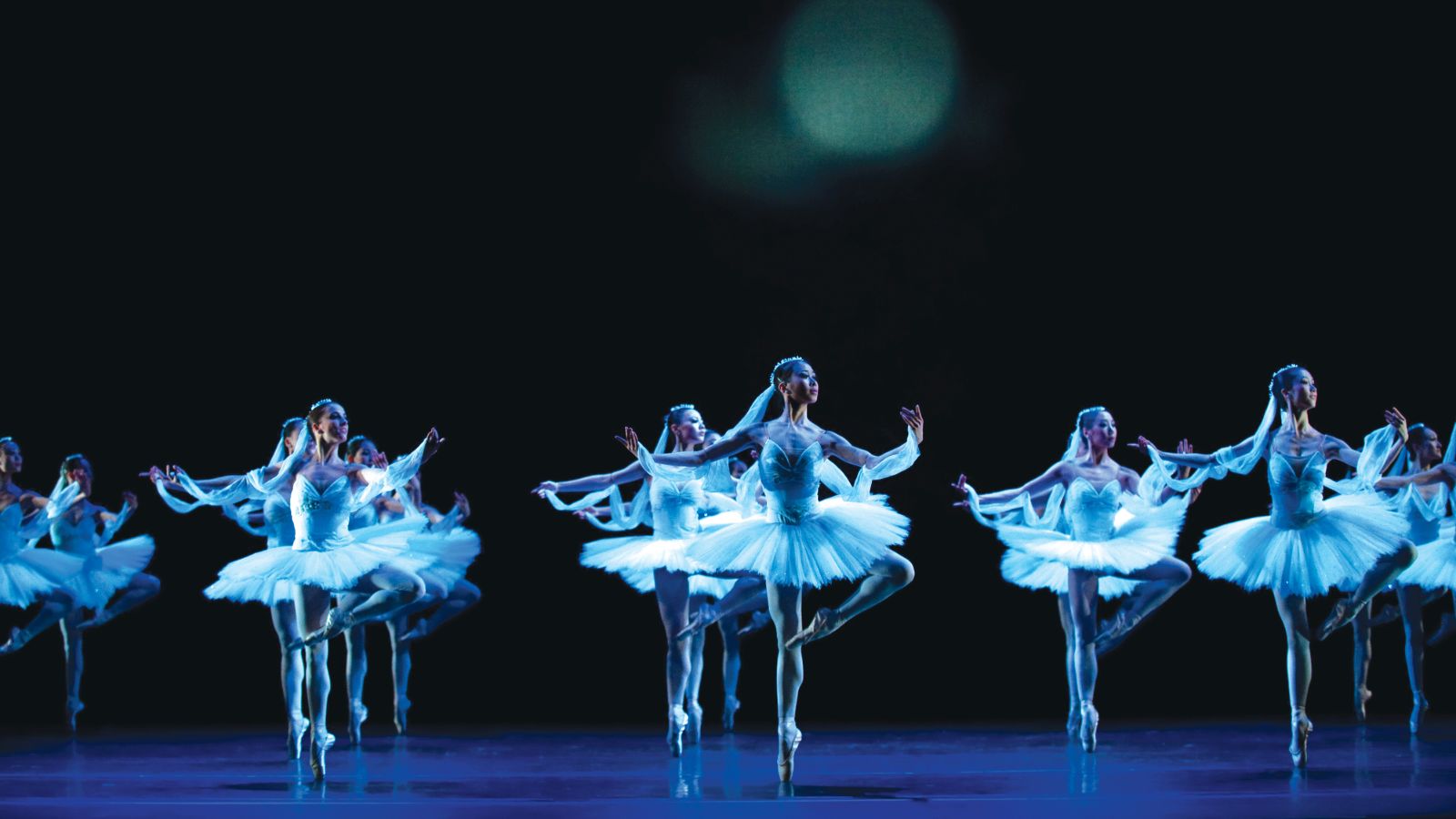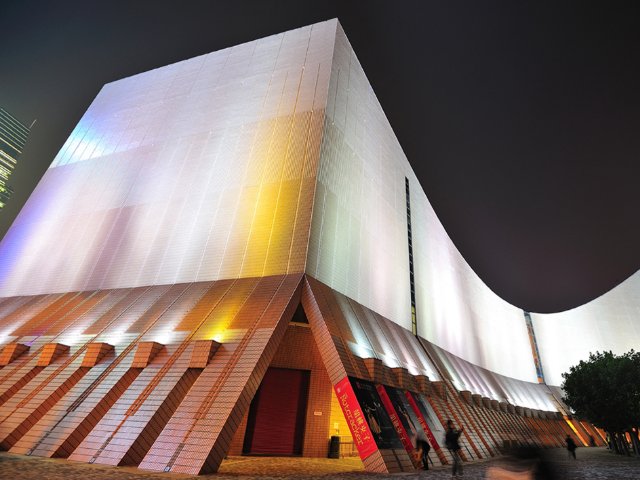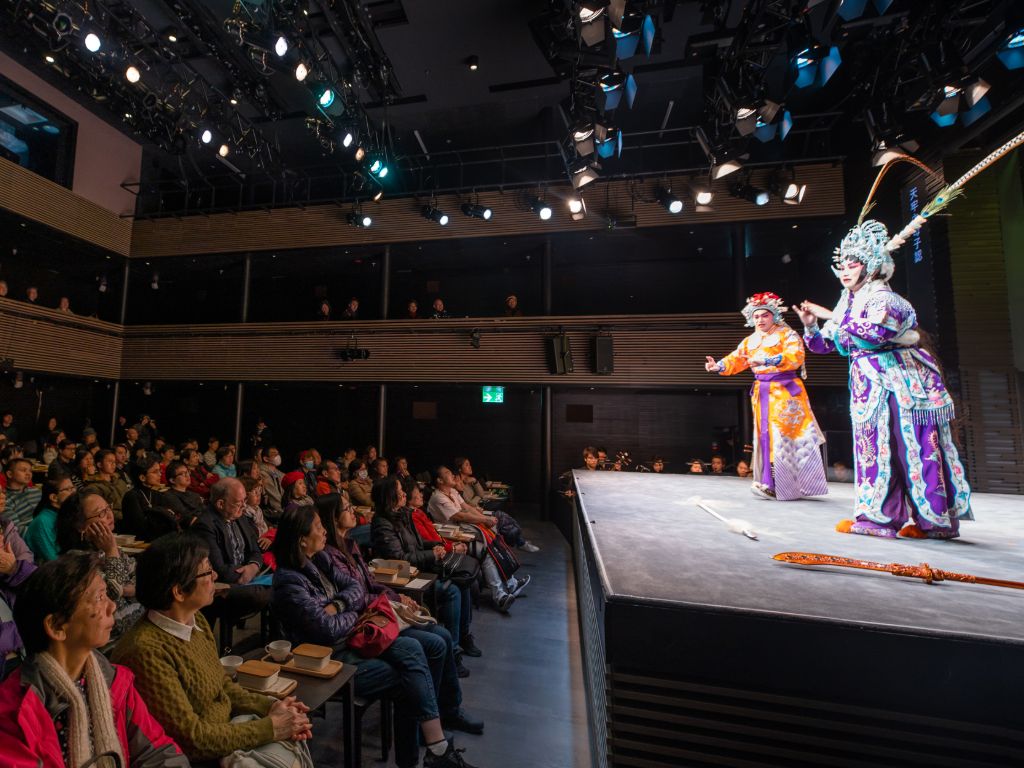
Fancy catching a ballet recital or singing your heart out to Andrew Lloyd Webber’s greatest hits? You’re in luck because Hong Kong is built for the performing arts to thrive — just take a look at this events-packed calendar and you’ll see what we mean. Whether you’re a fan of dance, drama or even traditional Chinese opera, there are plenty of world-class venues in this city where you can see different art forms leaping to life. Here are some of the top spots in town, and the best types of performances you can expect to experience there.

Fringe Club: best for contemporary arts
Housed in the former Old Dairy Farm Depot — a Grade I historic building known for its iconic brick-and-stucco exterior — Fringe Club
{{title}} Address {{address}} Website {{website}} More info has been championing the city’s contemporary arts scene since 1983. The club has an open-access policy, meaning that artists don’t have to go through a complicated selection process to showcase their works. It also means that audiences can enjoy a wide range of talents, from theatre and dance performances by budding local artists to stand-up shows helmed by international comedians. Drop by for one of the club’s popular live music shows or open-mic poetry readings, and enjoy a drink afterwards as you mingle with likeminded culture lovers.

Hong Kong Cultural Centre: best for international dance, music and theatre productions
The Phantom of the Opera, Les Misérables, Miss Saigon… These are just some of the internationally renowned productions that have graced the stages of the Hong Kong Cultural Centre
{{title}} Address {{address}} Website {{website}} More info . Housed right by the harbourfront on the tip of Kowloon peninsula, this structure is one of the premier venues for a wide array of cultural performances. A highlight here is the oval-shaped Concert Hall, which houses one of the largest mechanically operated pipe organs in the region. Meanwhile, the three-tiered Grand Theatre regularly hosts ballets, operas and musicals.

Hong Kong City Hall: best for classical performances and large-scale art events
Central may be known as the financial district of Hong Kong but it’s also home to Hong Kong City Hall
{{title}} Address {{address}} Website {{website}} More info — a hub for world-class cultural events. It was established in 1962 as the city’s first multi-purpose cultural complex and has remained at the forefront of Hong Kong’s arts scene ever since. Reputed for its excellent acoustics and sightlines, the main Concert Hall has hosted some of the world’s leading orchestras, choirs, ballet troupes and soloists; past performers have included the likes of the New York Philharmonic Orchestra, the Vienna Symphony Orchestra, Yo-Yo Ma and many other revered names. Aside from its own programme, the complex is also an important site for many of the city’s large-scale cultural events, such as the annual Hong Kong Arts Festival. If nothing on the events calendar catches your attention, it’s still worth visiting City Hall for its Cantonese restaurant, which does some of the best dim sum in town.

Hong Kong Coliseum: best for Cantopop concerts
Instantly recognisable by its inverted pyramid exterior, the Hong Kong Coliseum
{{title}} Address {{address}} Website {{website}} More info was originally built as an arena for major sporting events — a purpose that it’s continuously achieved since its inauguration in 1983. Athletics aside, however, the Coliseum has also become synonymous with the city’s pop music scene and is the de facto concert venue for all the biggest names, from divas such as Sammi Cheung and the late Anita Mui to the Four Heavenly Kings of Cantopop.
With its column-free arrangement and 12,500-seat capacity — the second-largest for an indoor venue in Hong Kong — it’s no wonder the Coliseum has remained so popular with performers and audiences alike. Even if you don’t understand the language, the appeal of Cantopop is universal with concerts usually involving more than two hours of singing and dancing with incredible costumes and set designs. They’re fun spectacles, providing you can grab tickets before they’re all snapped up by dedicated fans.

Xiqu Centre: best for Chinese opera
Despite its futuristic exterior, Xiqu Centre
{{title}} Address {{address}} Website {{website}} More info is all about celebrating tradition. Not only has it joined the city’s list of venues where you can enjoy Chinese opera and theatre, it brings these ancient art forms into the modern age by making them more accessible to all types of audiences. The venue boasts two purpose-built performance halls, including the 1,000-seat Grand Theatre, which hosts world-class troupes from Hong Kong and all across the region. Then there’s the more intimate Tea House Theatre, where you can enjoy dim sum and tea while watching members from the theatre’s resident Tea House Rising Stars Troupe showcase their skills and colourful costumes. If you want to learn even more about Chinese opera, the centre offers guided tours, workshops and talks on a regular basis.

Hong Kong Arts Centre: best for under-the-radar productions
Since opening its doors in 1977, the Hong Kong Arts Centre
{{title}} Address {{address}} Website {{website}} More info has been tirelessly championing the city’s art scene. This non-profit institution hosts a wide range of art programmes and often promotes cultural exchange between local talents and their counterparts across the globe. Shouson Theatre — the centre’s largest facility — is one of the best places in town to catch an under-the-radar theatre or dance production, or a screening from an up-and-coming indie filmmaker. Be sure to visit the Pao Galleries, which holds year-round exhibitions ranging from those by recent art-school graduates to seasoned international artists.
Information in this article is subject to change without advance notice. Please contact the relevant product or service providers for enquiries.
The Hong Kong Tourism Board disclaims any liability as to the quality or fitness for purpose of third party products and services; and makes no representation or warranty as to the accuracy, adequacy or reliability of any information contained herein.





 Live Chat
Live Chat









